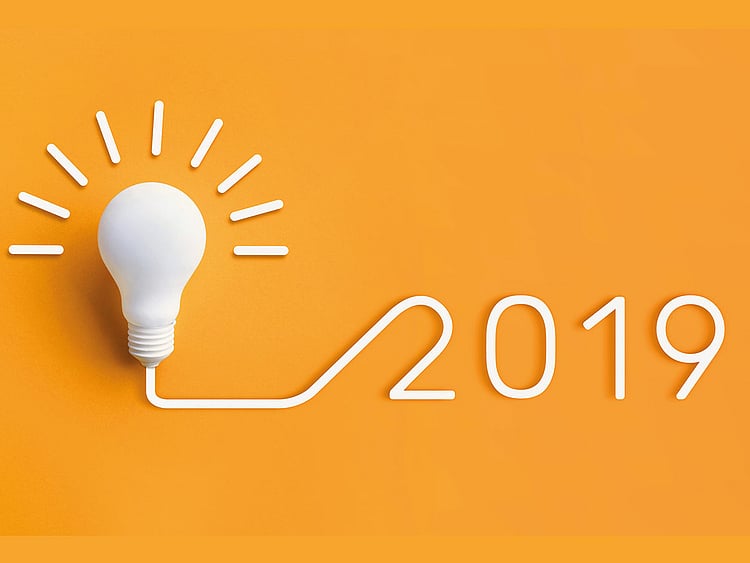Also In This Package
Dubai: We are all up to speed about a new year and the need to make resolutions. The truth is, even if do not make them, no one will point a finger at you for not doing so. In any case, most resolutions vanish like the morning mist by the time the year settles into its groove. But a new year is always a good opportunity to look back and look ahead at how one can better one’s personal growth and career and financial decision and waking up to the fact that we can truly be the change we want.
These are not outlier ambitions but innate responsibitites that will help us lead more responsible and therefore more fulfilled lives.
Dr Alina Vasilache, Clinical Psychologist at NovoMed, Dubai, provides practical ways to set milestones for 2019 and successfully reach them.
Personal growth and fulfilment
1. Make a list of personal objectives for the whole year: Be realistic about objectives, how you wish to achieve them, the time you wish to spend on them and the financial limitations you may face. Also take note of your personal skills these goals require. For example, let’s say that in 2019, you have two objectives - learning how to ride a motorcycle and how to swim. Now, evaluate if 2019 will afford you the time, skill sets and confidence to start working on this.
Remember, it is counter-productive to set targets that are unrealistic.
2. Focus on one goal at a time: Each month or every three months/six months (depending on what we are trying to achieve) set the deadline for that specific goal.
3. Break each goal into small steps and set a time limit for each step: When each step is reached, stop and evaluate your performance; reward yourself for what you have achieved, analyse the difficulties you had and plan for the next steps.
Career aspirations and ambitions
1. Establish your baseline first: This is a critical step as it allows you to have a starting point. Ask yourself ‘Where am I in my career or professional/academic path now?’
Define your progress over the years and analyse its pace. See what you can do to step up the pace and to do that, understand your strengths and weaknesses.
2. Draw your goal: On a clean page, draw an arrow pointing up and at the bottom of it write your baseline (your current position, academic level, etc). From there write at the top of the arrow where you would like to be in the future, not only at the end of next year, but your ultimate goal. In the middle of the arrow, write down the different steps, levels you must achieve and follow in order to reach your final goal. It’s about breaking it into smaller steps and organising those steps correctly on a time line setting the “must achieve goals” of the year.
3. For each step, establish a personal reward: So link the career/academic achievements with specific rewards, for example, when I pass this exam I will buy myself a bike.
Financial goals
1. Analyse expenses and costs of last year. If you don’t have a spread sheet from the previous year, this is the time to make one. Clarify secure funds, but also see if there is something you could do to provide extra funds, for example, sell things you don’t need anymore, cut certain costs that are not necessary, etc.
2. Take an overview: On the spread sheet, write down the current costs but also expected ones, allowing for a safety margin (keep in mind there will always be extras). See if there is anything that can be reduced in order to facilitate more flexibility and availability of funds.
3. Make a savings plan: Based on the analysis of your spread sheet, decide how much money you can put into savings: do this as soon as you receive your salary. Set limits for each spending category, for example, for going out, there is a monthly allowance.
4. Make a list of behaviours or environments (or people) you should avoid in order to save money…for example, ‘I will not go to a mall for two months as I know that every time I go, I spend money I haven’t planned.’
Environment
1. Establish clear categories that you can work on: These should help make you have a more environment friendly year:
a. I will use fewer plastic bags and try to reuse them as much as possible.
b. I will switch off the lights whenever I am not using them.
c. I will identify ways of recycling plastic offered by my community, etc.
2. Place notes: In your house/office with reminders as it’s is very easy to forget or not make the minimum effort.
3. Keep track: At the end of each week, give yourself a mark on how you have been doing. Reward yourself on those months when you feel you were very environment friendly maybe by enjoying nature for a weekend to feel the value of what you are doing.
Sign up for the Daily Briefing
Get the latest news and updates straight to your inbox
Network Links
GN StoreDownload our app
© Al Nisr Publishing LLC 2026. All rights reserved.
